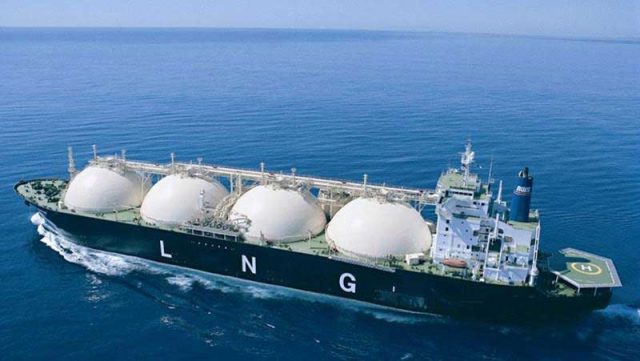Asian Dev’t Bank drops coal investments, may support more natural gas projects
By Angelica Y. Yang – May 9, 2021 | 7:32 pm
from Business World

REUTERS
THE Asian Development Bank (ADB) said in its first energy policy draft that it will not be funding new coal-fired plants but will consider investing in eligible natural gas projects.
“ADB will withdraw from financing new coal power and heat plants,” the bank said in its policy draft which was posted on its website Friday.
It added that it will not finance any coal mining, oil and natural gas field exploration, drilling or extraction.
The ADB said it will support its member-countries by financing technologies which will control the emissions of their currently operating coal-fired power plants and district heating systems. But the bank clarified that it does not plan on participating in investments that modernize, upgrade or renovate coal-fired facilities “unless it is to re-engineer such plants for use of cleaner fuels, such as natural gas or renewable energy sources.”
In the draft, the bank said it is looking at funding projects “with hybrid electricity solutions involving fossil fuels as backup systems together with renewable energy (RE)” for remote areas and isolated grids.
“We are happy that ADB finally decided to abandon coal once and for all in this draft policy,” environment and energy think-tank Center for Energy, Ecology, and Development (CEED) said in a statement Friday.
“However, in all its interventions, the Bank must have the immediate and complete phase-out of coal in mind. Retrofitting and any allowances for emissions in current projects would defeat the stated objective of the draft policy,” it added.
In its draft, ADB said that it may consider funding natural gas projects, including gas transmission and distribution pipelines, and liquified natural gas terminals, as long as all its requirements are met. “ADB will define sound screening criteria for other fossil fuel-generation projects, notably natural gas.”
Natural gas, for the bank, has played a key role in helping countries reduce emissions from coal. But it noted that generating power from natural gas does not eliminate greenhouse gas emissions.
“Despite these concerns, the current supply contracts and plans are expected to cause natural gas use to increase in the region during the next decade… In this context, it is a likely scenario that many of the region’s economies will continue to include gas in their energy transition strategies to replace coal and fuel oil,” the ADB said.
CEED expressed concern over the bank’s support for gas projects, including natural gas-related infrastructure and facilities.
“Asian communities, which are some of the most climate-vulnerable and pay some of the highest electricity rates in the world, need access to clean and affordable renewable energy. Fossil gas will just delay the necessary transition, at great cost to these communities,” CEED said.
Manila-based international policy group Institute for Climate and Sustainable Cities (ICSC) said Friday that ADB still leaves the door open to gas even as it closes the door on coal.
“There is no bridge in the world without an end, and if the Bank will consider fossil gas as a bridge and transition fuel, it needs to stipulate an end,” ICSC Senior Policy Advisor Pedro H. Maniego, Jr. said in a statement. “ADB did cite green hydrogen from renewable energy sources, which could eventually replace natural gas. Policies toward this end need to be established with urgency.”
In its policy draft, the ADB said achieving a low-carbon pathway in the energy transition requires power from renewable primary energy sources.
“The ADB will support a transition to cleaner power systems by supporting accelerated deployment of renewable energy including sustainable hydropower, solar PV installations and concentrated solar facilities for power, solar energy from collectors to heat, and on-shore and off-shore wind power,” it said.
The bank added that it will support large hydropower projects, but the application process will be “highly selective.”
“ADB will only support large hydropower schemes that have been evaluated as part of a robust strategic environmental and social assessment that has considered both alternative locations and designs,” it said.
CEED called large hydro projects a “destructive” form of RE projects, which are not “ecologically just.”
“In lieu of these and instead of promoting privatized systems, ADB would do well to support community-based microgrids which would empower local communities and can fuel the sustainable development we need today,” CEED said.



